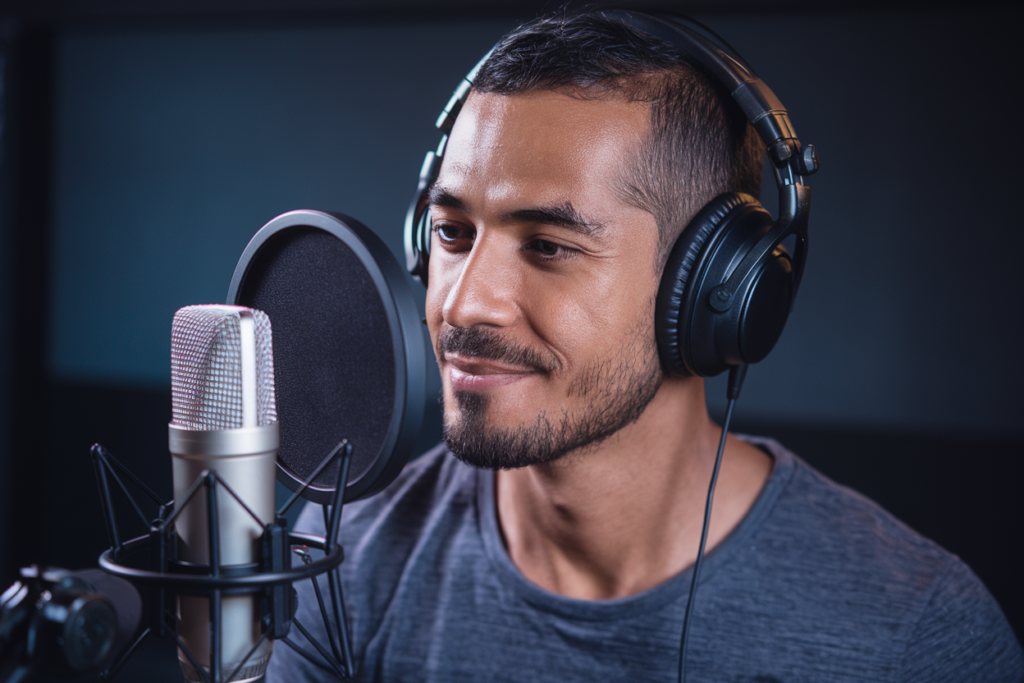Voice over in Arabic has become a critical service for businesses, media production, and entertainment industries aiming to engage Arabic-speaking audiences. With over 400 million speakers worldwide, Arabic is one of the most widely spoken languages and is rich in diversity, culture, and history. Here’s a detailed exploration of voice over in Arabic, covering language, accents, and dialects, as well as its application in different industries.
Importance of Arabic in Voice Over Services
- Global Reach: Arabic is an official language in 22 countries, making it a cornerstone for businesses targeting the Middle East and North Africa (MENA) region.
- Cultural Significance: Arabic is the language of the Quran and is deeply tied to Islamic culture, giving it immense cultural importance.
- Industry Demand: From advertising to e-learning and video games, Arabic voiceovers cater to diverse sectors.
Applications of Arabic Voice Over
- Advertising: Creating localized TV, radio, and online commercials for Arabic-speaking markets.
- Film Dubbing: Adapting international movies and TV shows for Arabic-speaking audiences.
- Corporate Training: E-learning modules and corporate presentations tailored for employees in the MENA region.
- Gaming: Arabic voiceovers enhance the gaming experience for native speakers.
- IVR and Telephony: Arabic Interactive Voice Response (IVR) systems for customer support.
The Arabic Language in Voice Over
Arabic has unique linguistic features that make it stand out in the world of voice over. It is a Semitic language written from right to left and is known for its phonetic complexity and rhythm.
Standard Arabic vs. Regional Dialects
- Modern Standard Arabic (MSA):
- Used in formal settings such as news broadcasts, government announcements, and academic content.
- Offers broad accessibility across Arabic-speaking regions.
- Regional Dialects:
Arabic has a wide range of dialects that differ significantly by region:
- Egyptian Arabic: Commonly used in entertainment, particularly films and TV.
- Levantine Arabic: Spoken in countries like Lebanon, Syria, and Jordan. Popular in media and advertising.
- Gulf Arabic: Preferred for corporate content in countries like Saudi Arabia, UAE, and Qatar.
- Maghrebi Arabic: Used in North African countries like Morocco, Algeria, and Tunisia.
Accents and Dialects in Arabic Voice Over
The Role of Accents in Localization
Accents add authenticity to voice overs, connecting with the target audience on a deeper level. An accent can convey cultural nuances and ensure that the message resonates with listeners.
Matching Dialects to Audience
For effective communication, selecting the right dialect is crucial:
- A product aimed at the Egyptian market would perform better with Egyptian Arabic, while corporate materials for Saudi audiences would benefit from Gulf Arabic.
- For international campaigns targeting multiple Arabic-speaking regions, Modern Standard Arabic ensures wider reach.
Qualities of a Professional Arabic Voice Over Artist
- Fluency: A professional artist must have command over MSA and at least one dialect.
- Cultural Understanding: Knowledge of cultural nuances ensures the delivery is respectful and relatable.
- Adaptability: Ability to adjust tone, pitch, and style based on the content—whether it’s an educational video or an emotional advertisement.
- Clarity: Pronunciation and enunciation are critical in Arabic voice over due to the complexity of its phonetic structure.
Why Choose Professional Arabic Voice Over Services?
- Accuracy: Avoid mistranslations and mispronunciations that can damage credibility.
- Cultural Sensitivity: Professional services ensure respect for cultural and linguistic nuances.
- Technical Expertise: High-quality recording and post-production for polished, professional results.
Arabic voice over services are indispensable for businesses and media looking to communicate effectively with one of the world’s largest linguistic communities. The right choice of language, accent, and dialect can make all the difference in engaging Arabic-speaking audiences authentically and powerfully.







